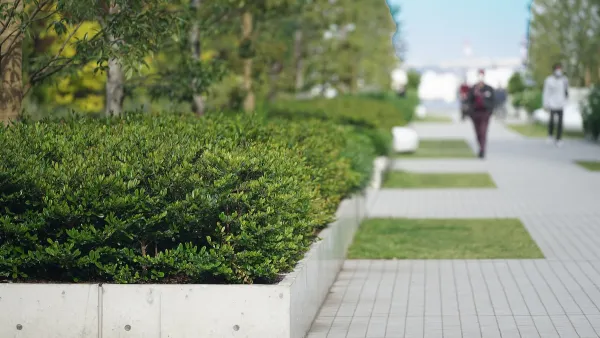How China embarked on an ambitious national plan to capture stormwater.

Writing in WIRED, Matt Simon warns, “Your city was built for a climate of 100, 200, 300 years ago, but that climate no longer exists.”
To that end, cities are finding new (and old) ways to manage and capture stormwater. “The hot new strategy in urban design, which was pioneered in China, is to slow everything down. Since 2013, China has embarked on a national policy to turn its growing metropolises into sponge cities, which capture stormwater instead of disposing of it all.”
WIRED interviewed Kongjian Yu, champion of the concept and founder of the Beijing design firm Turenscape, who says “A sponge city can be on any scale.”
According to Yu, “You have to solve the problem holistically, and the sponge city is a nature-based, holistic solution. It is inexpensive, and it can be done at a small or large scale. You can have your garden, but you also have to plan from the top. It is a sponge planet, it is a sponge countryside, it is a sponge urban district.”
For cities looking to build more resilient green infrastructure, Yu says “ if you come to the green alternative, you will not only save money, but the impact will be more immediate. The sponge city is basically using free nature.”
FULL STORY: The Designer Who’s Trying to Transform Your City Into a Sponge

Maui's Vacation Rental Debate Turns Ugly
Verbal attacks, misinformation campaigns and fistfights plague a high-stakes debate to convert thousands of vacation rentals into long-term housing.

Planetizen Federal Action Tracker
A weekly monitor of how Trump’s orders and actions are impacting planners and planning in America.

In Urban Planning, AI Prompting Could be the New Design Thinking
Creativity has long been key to great urban design. What if we see AI as our new creative partner?

King County Supportive Housing Program Offers Hope for Unhoused Residents
The county is taking a ‘Housing First’ approach that prioritizes getting people into housing, then offering wraparound supportive services.

Researchers Use AI to Get Clearer Picture of US Housing
Analysts are using artificial intelligence to supercharge their research by allowing them to comb through data faster. Though these AI tools can be error prone, they save time and housing researchers are optimistic about the future.

Making Shared Micromobility More Inclusive
Cities and shared mobility system operators can do more to include people with disabilities in planning and operations, per a new report.
Urban Design for Planners 1: Software Tools
This six-course series explores essential urban design concepts using open source software and equips planners with the tools they need to participate fully in the urban design process.
Planning for Universal Design
Learn the tools for implementing Universal Design in planning regulations.
planning NEXT
Appalachian Highlands Housing Partners
Mpact (founded as Rail~Volution)
City of Camden Redevelopment Agency
City of Astoria
City of Portland
City of Laramie





























